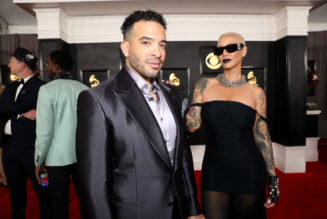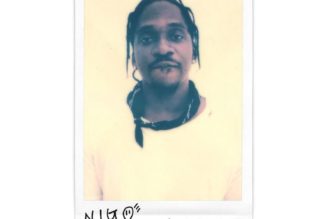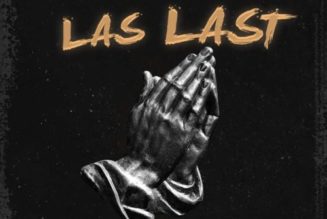South African singer Zahara – who once sang for Nelson Mandela – has died aged 35 after a years-long struggle with alcoholism.
Born Bulelwa Mtutukana in 1987, the singing sensation who delivered her unique version of wistful Afro-soul in her country’s Xhosa language and in English – had previously spoken about her battles with alcohol addiction, and was warned by doctors that she would die if she didn’t stop drinking.
Zahara’s fans had previously compared her to late British star Amy Winehouse, in part because of her striking voice, but also due to her tragic fellow singer’s similar battle with substance abuse that ended in the Back to Black singer dying aged 27.
Her family said last month that she had been admitted to hospital after complaining about “physical pains” and asked South Africans to pray for her.
News of her death was confirmed by her manager, Oyama Dyosiba, who said Zahara died “surrounded by family and loved ones” on Monday 11 December.
“She was a pure light, and an even purer heart, in this world, a beacon of hope, a gift, and a blessing to us and countless people around the world,” a statement posted to Zahara’s social media said.
A self-taught guitarist who sang in a blend of Xhosa and English, Zahara rose to fame in 2011, aged 23, with her debut album Loliwe, which won Album of the Year at the South African Music Awards.
The title referred to the train that carried men to Johannesburg to find work during apartheid, many of whom never returned to their families. In 2012, Zahara said the song was about “lingering hope” but also urged those left behind to “pick yourself and look forward”.
“She inspired us with Loliwe,” South African Music Awards spokesperson and former music journalist Lesley Mofokeng told TV channel Newzroom Afrika. “You could not ignore Loliwe. Her voice could reach the heavens.”
Enjoy unlimited access to 70 million ad-free songs and podcasts with Amazon Music
Sign up now for a 30-day free trial
Enjoy unlimited access to 70 million ad-free songs and podcasts with Amazon Music
Sign up now for a 30-day free trial
Zahara performed the title track from the record for Nelson Mandela at his home before his death in 2013, then later wrote a tribute that included the lyrics: “Hero of heroes, There’s none like him.”
She collaborated with Ladysmith Black Mambazo for her second album, Phendula, on the opening track “Rise Again”, then went on to release the x3 platinum Country Girl.
Zahara signed with major label Warner Music to release her fourth album, Mgodi, following a fall-out with her former label, TS Records, who she claimed in 2019 owed her millions. TS Records label owners DJ Sbu and TK Nciza denied these claims.
Along with being a hugely successful artist, the singer – who said she survived an attack by a man who pepper-sprayed her in his car – was also a vocal campaigner against violence against women, which she said was a “pandemic” in South Africa in 2020.
“[Men] feel like they are entitled to women, like women are theirs,” she told the BBC. “Men in South Africa, all they care about is them.”
Zahara’s struggles with alcoholism were well-known.Her manager confirmed in 2019 that she was suffering from liver disease as a result of her alcohol abuse, while her sister Nomonde said that doctors had told her, “if [Zahara] continues drinking, she is going to die… we are making sure that there is always someone around her to monitor her so that she doesn’t start drinking again”.
The statement from her family announcing her death said: “A legendary figure in the world of music, Zahara remarkably touched millions of people’s lives with her extraordinary gift and passion for music. She leaves behind an indelible mark on the music industry and a legacy that will forever resonate in our hearts and souls.“A life so beautifully lived deserves to be beautifully remembered. May we remember Zahara not with sorrow, but with the healing joy, kindness and inspiration she brought to us through her life and her music.”
It concluded: “May she rest in eternal peace, and may her melodies continue to echo in our hearts forever.”
South Africa’s sports, arts and culture minister, Zizi Kodwa, paid tribute, saying: “My deepest condolences to the Mkutukana family and the South African music industry.
“Government has been with the family for some time now. Zahara and her guitar made an incredible and lasting impact in South African music.”









